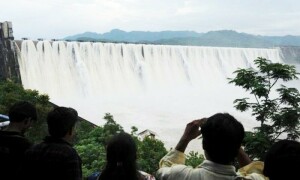THE Indus Waters Treaty, once hailed as a rare model of bilateral cooperation between two nuclear-armed neighbours, now finds itself under siege. India’s recent announcement to “hold the IWT in abeyance” is not just a diplomatic manoeuvre; it is a bold attempt to reconfigure regional water politics without realising that the consequences are immediate and the implications far-reaching for both sides.
In this Machiavellian world, New Delhi’s decision is primarily driven by geopolitical opportunism than by legal reasoning. First, on the international front, this decision reflects New Delhi’s growing confidence in an international system where rules are increasingly malleable and enforcement mechanisms weak. The Russian invasion of Ukraine and Israeli war crimes in Palestine, with least international accountability, have made states confident of no legal accountability. In this permissive environment, India sees little risk in undermining a decades-old treaty.
Second, the global strategic focus is fractured. The West remains preoccupied with an expanding menu of crises: the security recalibrations of the EU, Trump’s tariff wars, fragile Ukraine-Russia peace prospects, and the protracted conflict in Gaza. Amid this noise, India’s strategic utility — as a regional bulwark against China — has magnified. For Western capitals, New Delhi is more than a regional player; it is a strategic pillar in the Indo-Pacific. This elevated status emboldens India, confident that its treaty violations will be seen as bilateral frictions, not the actions of an unreliable global partner.
Thirdly, domestic political precedence has further emboldened New Delhi’s posture. The 2019 revocation of Articles 370 and 35-A, which stripped occupied Kashmir’s special status, faced diplomatic pushback but with no effective strategic setback. Islamabad’s inability to reverse New Delhi’s move sent a clear signal to Indian policymakers: strategic risks when timed well and backed by global indifference often yield net gains. The same logic now underpins India’s IWT gambit — secure in the belief that Pakistan lacks the diplomatic leverage to generate meaningful consequences.
Pakistan can no longer afford to play by the old rules.
Fourth, one of New Delhi’s frustrations has been Islamabad’s effective use of the IWT’s dispute resolution framework to contest India’s controversial dams’ projects. Pakistan’s objections were grounded in precise technical and legal interpretations of the treaty. Unfortunately, New Delhi viewed these objections as a deliberate tactic by Islamabad to delay those projects. This frustration led to India’s demand to seek amendments in the treaty framework. In this context, India’s unilateral move to suspend the treaty appears to be less about legal rationale and more about political coercion — a calculated ploy to force Islamabad back to the negotiating table under pressure.
The rules of engagement are changing and Pakistan can no longer afford to play by old ones. India’s unilateral suspension of IWT is a calculated test of Pakistan’s strategic nerves. Islamabad’s reliance on legal pathways, while principled, appears to underestimate the shifting geopolitical landscape where the law is often subordinate to power.
Pakistan’s current approach, that a fractured international system — one that has failed to implement UNSC resolutions on Kashmir for over seven decades — will compel India to reverse course is, at best, too optimistic. Also, Pakistan must recognise that the international community’s role will likely be limited to de-escalation and calls for bilateral negotiation. The era of external enforcement is over; strategic self-reliance is now imperative.
To mount an effective response, Islamabad must pivot from reactive legalism to a comprehensive political-strategic framework. First, it should reconsider the concessions made under Article II of the treaty and formally seek a review of its surrender of rights over three eastern rivers, particularly in light of India’s breach of the accord.
Second, Islamabad must immediately block the four known Indian canals releasing untreated wastewater into Pakistani territory.
Third, and most crucially, Pakistan must learn when to say no. Whether under diplomatic pressure from global capitals or strategic coercion from New Delhi, Pakistan should categorically refuse to enter any renegotiation of the treaty unless India first reverses its unilateral suspension. If India’s refusal to share water-flow data results in damage of lives or property, Pakistan must ensure New Delhi’s non-cooperation does not go unanswered.
Islamabad must realise that behind the technocratic language and legal ambiguity lies a clear message: treaties are now tools of convenience, not commitments of principle.
The writer is an analyst of South Asian affairs. The views expressed are his own.
Published in Dawn, May 24th, 2025











































